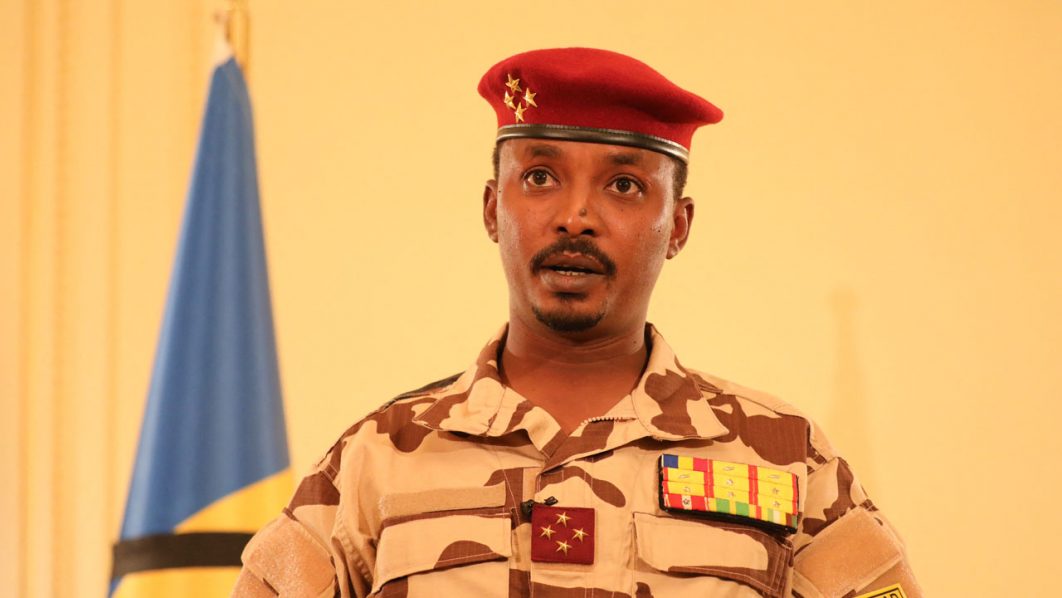
Chad’s new ruling junta on Sunday vowed to root out a rebel leader accused of “war crimes”, seeking help from neighbouring Niger to track him down along with his fighters.
The army has “located the enemy spread out in small groups, now regrouping in Niger territory,” said junta spokesman Azem Bermandoa Agouna.
He accused the Libya-based Front for Change and Concord in Chad (FACT) of killing several dozen Chadian soldiers and said the rebels’ leader Mahamat Mahadi Ali was “sought for war crimes by Tripoli’s prosecutor general”, adding that his assets had been frozen for “financing terrorism”.
According to the army, several columns of heavily armed vehicles rolled in from Libya on April 11 — election day in Chad — attacking a customs post at the border in the province of Tibesti, some 1,000 kilometres (600 miles) from the capital N’Djamena.
Agouna appealed to Niamey “to facilitate the capture and bringing to justice of these war criminals.”
FACT, which has a non-aggression pact with Khalifa Haftar, the military strongman of eastern Libya, emerged in April 2016.
On Saturday the rebels said they were prepared to observe a ceasefire, but Agouna said the two sides were at war.
“They are rebels, which is why we are bombing them. We are waging war, that’s all,” Agouna said.
“The time is not for mediation, nor for negotiation with outlaws,” he said.
Reached by telephone, Ali told AFP he was still in Chad, in the northern province of Kanem, adding that his forces had been bombarded.
“If they want to make war, we will make war,” he said. “If they attack us we will respond.”
Battlefield death
Chad’s veteran leader Idriss Deby Itno reportedly died in battle early last week after fighting in which hundreds of FACT rebels were killed, according to the army.
Northern Chad is a restive region and a breeding ground for rebel groups opposed to the N’Djamena authorities.
Abandoned to illegal gold miners and gangs of traffickers, it is sparsely populated and difficult to control.
Numerous Chadian rebel groups have for decades launched incursions from rear bases in Libya.
Deby, who himself came to power in 1990 at the head of a rebel force, had gone to the region to lead the fighting.
The military council took power last week following his shock death, pledging to hold elections in 18 months.
Deby’s son Mahamat Idriss Deby, a 37-year-old four-star general commanding the elite Republican Guard, was named president and head of a military council.
The move was branded an “institutional coup” by the opposition, and FACT immediately vowed to pursue its offensive and to march on the capital.
Northeastern Chad, which borders Sudan, is also a flashpoint between Chadian rebels and the army.
In 2008, rebels, who had rolled in from support bases in Sudan, crossed into Chad from east to west to reach the capital.
They got as far as the presidential palace, but were pushed back with backing from former colonial power France.
France stepped in at N’Djamena’s request in February 2019, carrying out air strikes to stop rebels from the Union of Resistance Forces (UFR) who had also crossed over from Libya in a bid to oust Deby.
Deby was buried last Friday in a state funeral attended by French President Emmanuel Macron.
Chad was thrown into turmoil by Deby’s death, which was announced on Tuesday, just the day after he was declared the winner of an April 11 election — giving him a sixth mandate after 30 years at the helm.
His death has stunned the Sahel, where jihadist unrest has claimed thousands of lives and forced hundreds of thousands from their homes.
Deby was a linchpin in the fight against the insurgency, and Macron pledged at the ceremony: “France will never let anyone, either today or tomorrow, challenge Chad’s stability and integrity.”
Deby was repeatedly returned to office in elections condemned by opponents as fraudulent.
Follow our socials Whatsapp, Facebook, Instagram, Twitter, and Google News.






